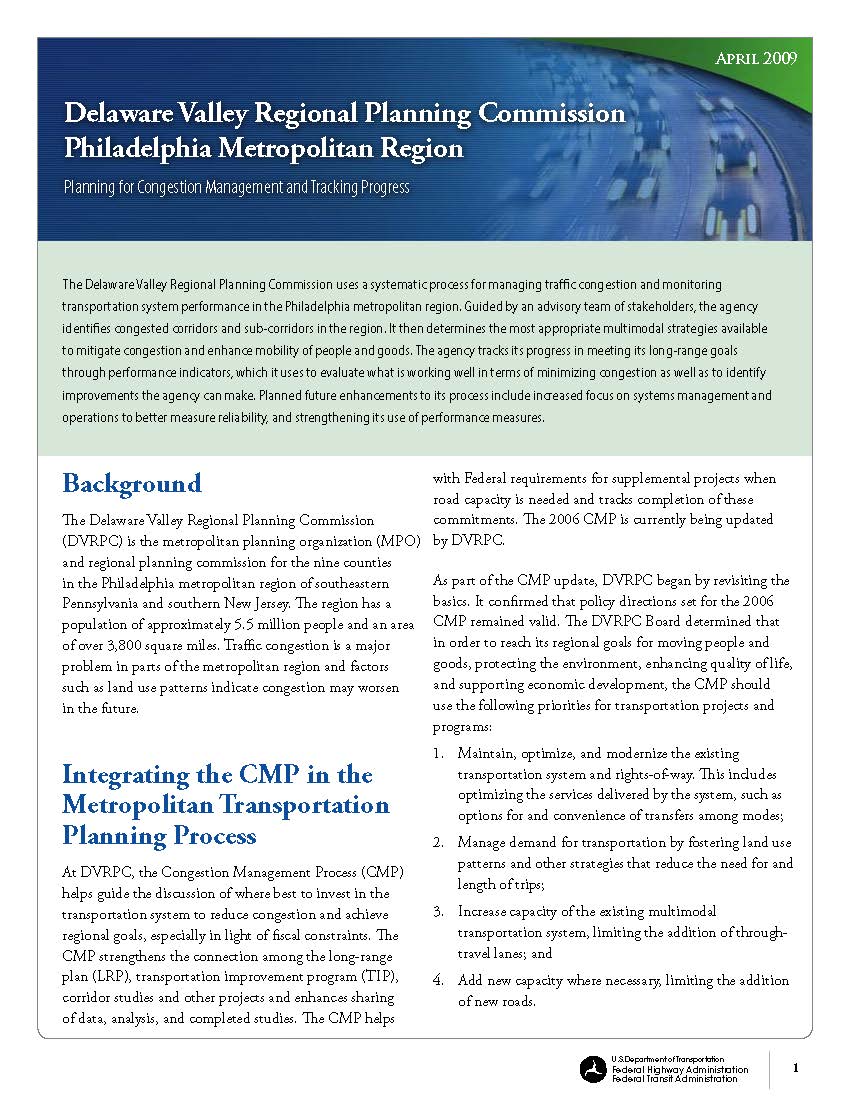Overview
 A strategic approach to planning for operations that is guided by specific objectives and regular performance measurement will help ensure that the most effective operations strategies are incorporated into transportation plans. In many regions around the country, agencies are already applying elements of this approach in a variety of ways. This case study is just one example of where this is being done.
A strategic approach to planning for operations that is guided by specific objectives and regular performance measurement will help ensure that the most effective operations strategies are incorporated into transportation plans. In many regions around the country, agencies are already applying elements of this approach in a variety of ways. This case study is just one example of where this is being done.
The Delaware Valley Regional Planning Commission uses a systematic process for managing traffic congestion and monitoring transportation system performance in the Philadelphia metropolitan region. Guided by an advisory team of stakeholders, the agency identifies congested corridors and sub-corridors in the region. It then determines the most appropriate multimodal strategies available to mitigate congestion and enhance mobility of people and goods. The agency tracks its progress in meeting its long-range goals through performance indicators, which it uses to evaluate what is working well in terms of minimizing congestion as well as to identify improvements the agency can make. Planned future enhancements to its process include increased focus on systems management and operations to better measure reliability, and strengthening its use of performance measures.